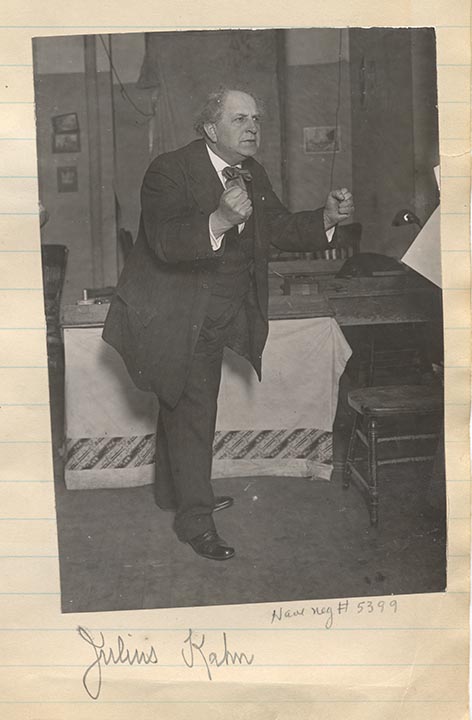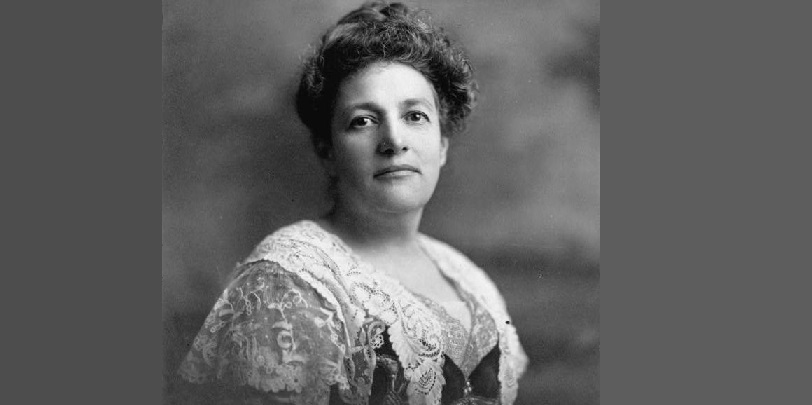On February 17, 1925 Florence Prag Kahn wins a special election to fill the San Francisco congressional seat previously held by her late husband, Julius. During her 12 years in office, the witty and savvy Republican introduces legislation that creates Moffett Field in Sunnyvale, Alameda Naval Air Station and Hamilton Field as well as construction of the Bay Bridge linking Oakland and San Francisco. She is the first woman appointed to the Military Affairs Committee and the Appropriations Committee. An opponent of woman suffrage before California adopted it in 1911, she is quoted as saying “there’s no sex in citizenship and there should be none in politics.”
Says Alice Roosevelt Longworth, daughter of Theodore Roosevelt, in a 1934 Ladies Home Journal interview:
“Mrs. Kahn, shrewd, resourceful, and witty, is an all-around first-rate legislator, the equal of any man in Congress and the superior of most.”
Born in Salt Lake City in 1866 but reared in San Francisco, Kahn is one of seven women in the 40-member University of California Class of 1887. She wants a law degree but instead becomes a teacher to help support her family. For more than a decade, she works at Lowell High School in San Francisco.

She marries Julius Kahn, a former actor turned lawmaker, in March 1899 when he is in his first term in Congress. Florence serves as her husband’s “secretary” but is more confidante, partner and surrogate. In 1919 and 1920 she writes columns for the San Francisco Chronicle displaying a keen grasp of political issues. Despite suffering from an extended illness, Julius runs for re-election in 1924 but dies on December 18, forcing a special election. During much of his sickness, Florence is representative in all but name. She becomes a member of Congress at 58, receiving 48 percent of the vote. She tells the International Herald Tribune after her 1925 election:
“One of the things I learned during 25 years as the wife of a Congressman is not to meet the issues until they come up and not to talk too much. So I am not going to say that I will do any particular things except to represent my district the best I am able.”
As a member of Congress, Kahn is dubbed the “mother of the FBI” by J. Edgar Hoover, for her strong support of the bureau. Despite backing President Herbert Hoover for re-election in 1932, she is the first Republican to dine at Democrat Franklin Roosevelt’s White House. Kahn helps institute pensions for army nurses, establishes a program honoring the mothers of fallen soldiers and decries the low wages of female government employees.
But while “the woman in political office must remember her responsibility toward other women,” Kahn insists “I am not specifically interested in so–called women’s questions as all national positions are sexless.” Swept from office in Roosevelt’s 1936 landslide, she returns to San Francisco where her Nob Hill home becomes a political salon. She is named one of the 12 outstanding women in California’s history at the 1939 Golden Gate Exposition. She dies on November 16, 1948 at 82. The next Jewish woman elected to Congress is Bella Abzug in 1970.
